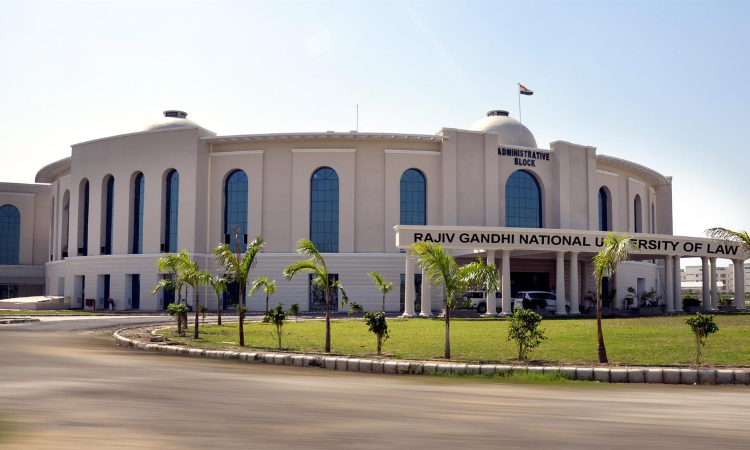RGNUL: Two-Day National Conference On Environmental Degradation, Social Change, Development, And The Youth [25-26 April]
LIVELAW NEWS NETWORK
9 March 2024 9:10 PM IST

The Rajiv Gandhi National University of Law (RGNUL), Punjab, was established by the State Legislature of Punjab by passing the Rajiv Gandhi National University of Law, Punjab Act, 2006 (Punjab Act No. 12 of 2006). The Act incorporated a University of Law of national stature in Punjab, to fulfill the need for a Centre of Excellence in legal education in the modern era of globalization and liberalization.
Punjab Pollution Control Board
The Punjab Pollution Control Board was constituted in the year 1975 vide Punjab Government Notification No. 6186-BR II (4) 75/24146 dated 30.07.1975, after the enactment of the Water (Prevention & Control of Pollution) Act, 1974 to preserve the wholesomeness of water. Subsequently, with the enactment of other environmental laws, the responsibility to implement the provisions of such laws was also entrusted to the Punjab Pollution Control Board in the State of Punjab. The Pollution Prevention and Control Board (PPCB) plays a crucial role through various important functions. Firstly, it devises comprehensive programs aimed at preventing, controlling, or abating pollution, ensuring their effective implementation. Additionally, the PPCB is responsible for the collection and dissemination of information about pollution and its prevention, control, or abatement. It conducts inspections of sewage, trade effluent treatment, and disposal facilities, as well as air pollution control systems, while also reviewing plans and specifications related to these systems in connection with granted consents.
Department Of Sociology, RGNUL
The Department of Sociology at RGNUL, Punjab was established in 2013. The subject of Sociology has been taught in the institution from the year 2006. Presently, the department runs six (6) papers on Sociology Major (for the first to sixth semester) and Three (3) papers on Sociology Minor (for the first, second, and fourth semesters) for all the batches. The department has been organizing various events at the national as well as international level. Many seminars, conferences, and training programs have been organized by the faculty of the department from time to time. Series of lectures are also organized by inviting professionals from various fields of social sciences. The Objective of the department is the overall development of the students inclusive of academic growth and psychological health. Various sessions of counseling are held by the faculty of the department to address social issues affecting the students to empower them socially to deal with challenging social situations efficaciously. The Department of Sociology is committed to undertaking academics and research to produce functional results for society and various communities.
The Theme Of The Conference
Change is inevitable in nature and implication. When alterations occur in the social structures, social systems, social institutions, and organizations, they affect and influence all the communities. Further, all the changes taking place in different communities are not the same; somewhere these changes are functional and in some instances, these changes lead to devastations and adversities. When they talk about communities, they can refer to gender; old people; youth; children; literate and illiterate people; rural and urban dichotomy, and the like. The planned National Conference aims at understanding the impact of Social Change and Development on Youth as a prominent community. It also aims to explore how the youth is contributing to the developmental processes and policies. 'Youth' is the future of any nation and it needs to be invested in, in terms of physical as well as mental health; education; employability; happiness indexing; social security; spiritual strength; secondary and professional socialization; capacity building and skill development; and the like. The world is noticing suicide in youth as a major issue, and India is not an exception.
Sub-Themes For Authors
- Environment (Natural & Social)
- Education and Policy
- Crime & Criminality; Deviance and Victimisation
- Health (Physical & Mental)
- Religion & Spirituality; Culture; And Social Rubric
- Politics, Political Structure, And Political Instability
Registration Details
Registration Fees For The Seminar:
- Online Participants (same for students, professionals, academicians, and others) - ₹708/- (inclusive of GST) per head
- Offline participants- ₹1180/-(inclusive of GST)for Professionals and ₹708/-for Students.
- Co-authorship is limited to three authors maximum for one manuscript. Each author shall pay the Registration Fee separately.
- The payment link can be accessed here:- https://lsacademia.in/lsa_rgnul/eventPortal/loginFrom.jsp
Important Dates
- Submission of the Abstract: 15 March 2024
- Acceptance emails: On a Rolling Basis
- Final Submission of Papers: 25th March, 2024
- Offline Sessions: 25th April, 2024
- Online Sessions: 26th April, 2024
- Immediate registration after the finalization of the abstract is recommended.
- Registration Deadline (All Participants, Presenters, And Delegates):17th April, 2024,11: 59 P.M.
Kindly check the brochure for detailed information.


